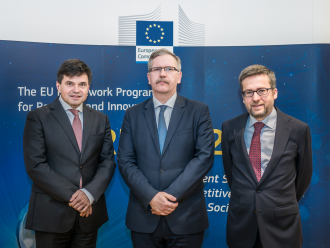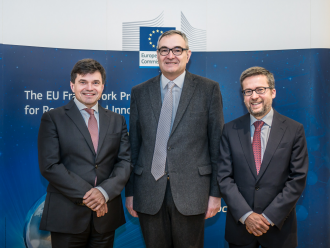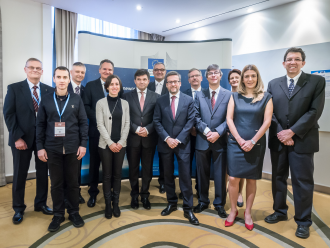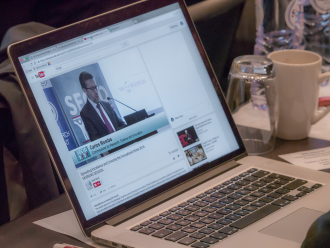"Spreading excellence brings benefit to all EU Member States. An open research system driven by excellent science and innovation are central to the future of the EU and us all." said Carlos Moedas, Commissioner for Research, Science and Innovation said on the conference in Brussels.
Under Horizon 2020, a set of measures with a budget of around EUR 800 million is available for widening the participation of less performing countries. These include Teaming, Twinning and the ERA Chairs instruments. Eligible Member States under Teaming include all those that joined the EU after 2004 plus Portugal and Luxembourg. So far 10 Teaming Phase 2, 31 Teaming Phase 1, 67 Twinning and 14 ERA Chairs have been funded under Horizon 2020, bringing a total of €185 million in EU funding to these countries. The Commission has proposed to substantially increase the money available for broadening participation in Horizon 2020 during the last three years of the programme; however the final figures depend on the outcome of the ongoing budget discussions with the European Parliament and Council.
The measures outlined below complement existing Commission initiatives to address the innovation divide, such as the actions under the 'Spreading Excellence and Widening Participation' part of Horizon 2020 and the extensive financial support for research and innovation from the Structural Funds.
- The Commission announced that it has selected for funding 10 new knowledge centres that will be set up with EUR 140 million from Horizon 2020. This will help nurture scientific excellence in nine countries, namely Bulgaria, Cyprus, Czech Republic, Hungary, Latvia, Portugal, Serbia, Slovakia and Slovenia, which are currently less performing in research and innovation (R&I). Each project will receive maximum EUR 15 million from the so-called Teaming instrument run under Horizon 2020, which is designed to facilitate institution building in eligible countries in close cooperation with Europe's leading scientific and innovation powerhouses. The overall budget for these measures is expected to increase during the last three years of Horizon 2020. These funds were applied by nearly 270 projects from 27 countries – in a great competition Hungary won 2 of the 10 grants.
- Tapping further into synergies between Horizon 2020 and the European Structural and Investment Funds, the Commission will enable more researchers to develop and bring to market their innovative ideas. So far the Seal of Excellence, a quality certificate issued by the Commission to first class R&I projects, has helped companies get financing from alternative public and private sources in case their projects were not funded due to budget constraints in the Horizon 2020 calls for small- and medium-sized companies (SMEs). Three high-quality Teaming proposals not funded now under the available call budget were awarded the Seal for possible alternative funding.
- Furthermore, key topics where researchers from less performing countries can lead in R&I excellence will be better identified and reflected in the next Horizon 2020 calls. The Commission will also help to reinforce national reforms aimed at facilitating participation in EU research programmes through dedicated activities of the Policy Support Facility.
The two awarded Hungarian Teaming projects were represented on the Brussels conference by Dr. László Monostori, Director of the Institute for Computer Science and Control, Hungarian Academy of Sciences (MTA SZTAKI) on behalf of the EPIC project, and Dr. Gyula Péter Szigeti, Vice President of the coordinating National Research, Development and Innovation Office on behalf of the HCEMM-MOLMEDEX project.
Further reading on the two awarded Hungarian Teaming projects is available here.
 |
 |
|---|---|
 |
 |






